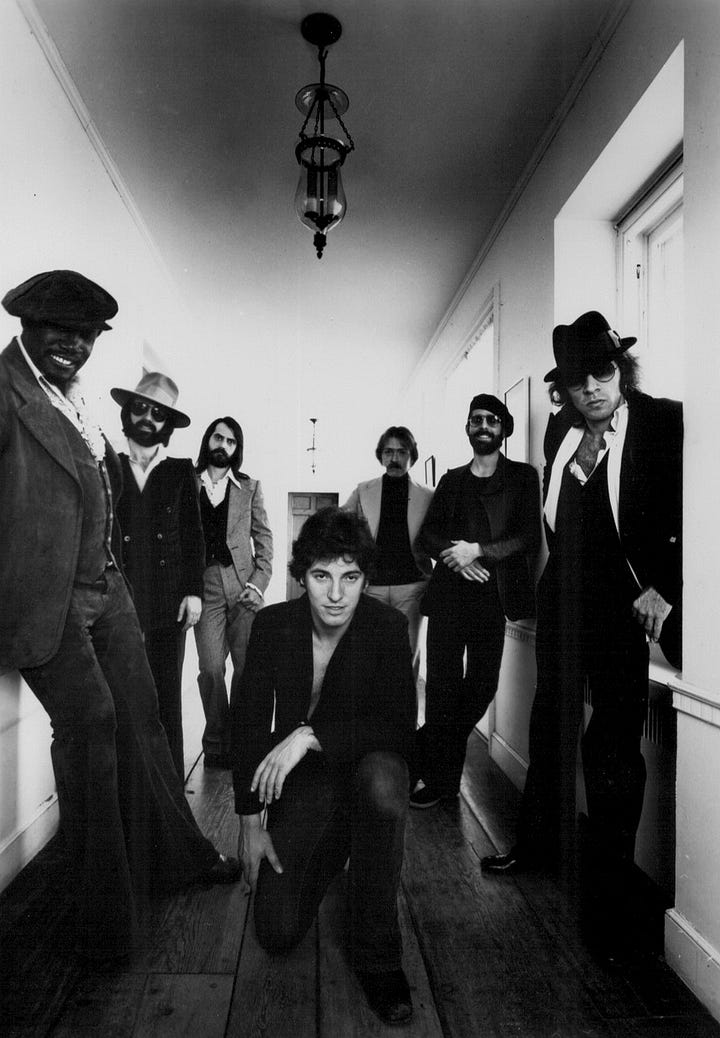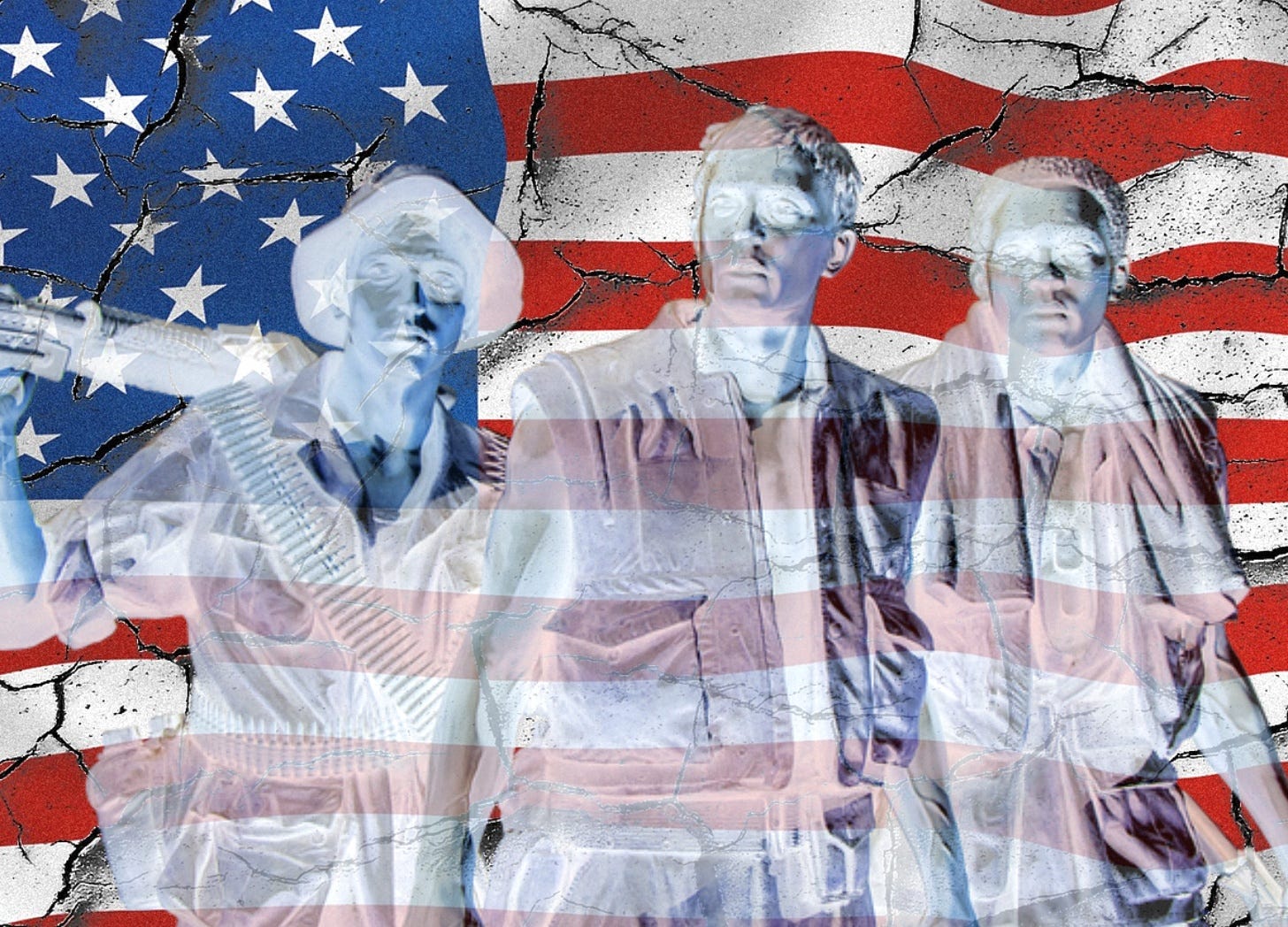Born in the U.S.A.: A Pissed-Off Patriotic Song of Protest
When Bruce Springsteen was a street fighting man
Bruce Springsteen earned his stripes as a gritty, working class songwriter who wrote America’s story from the hard edges of his East Coast upbringing.
Known as “The Boss”, he epitomized being a New Jersey guy through and through, and soon became legend to his regional fans.
Those of us living in the middle America hinterlands never heard of him.
It was Springsteen’s third album that got our attention. In 1975, Born to Run came out blasting with a flurry of roadside attractions such as Thunder Road, Jungleland and Backstreets.
And of course the title track. Imagine being a high school teenager in America and hearing these lyrics:
Wendy, let me in, I wanna be your friend I wanna guard your dreams and visions Just wrap your legs 'round these velvet rims And strap your hands 'cross my engines
No young man could resist cars, girls and: “But I gotta know how it feels, I want to know if love is wild.” No revisionist history needed.
That’s what made Bruce Springsteen a legend outside of the state of New Jersey.


Stars and Stripes of Consciousness
Nearly a decade after Springsteen rode his gas-powered songs and his indefatigable performances into stardom, he released Born in the U.S.A. in 1985.
It was a controversial album even before you took out the vinyl from its colorful cover.
Just when you thought the Vietnam War was in the past, Springsteen, allegedly, pisses on Old Glory and rubs old blood in the faces of politicians and media pundits.
Patriotism comes in many forms. Springsteen chose imagery that highlighted a working class point of view of the nation’s treatment of veterans.
Both the album cover and title song sent mixed messages to listeners. The rollicking record set off a jingoistic swagger for a song filled with disillusionment. America likes to celebrate soldiers going to war, more than taking care of them after the conflict is over.
So the music label changed the album cover to a more suitable flag-waving version for popular consumption.


Catchy With a Killer Beat
Even Ronald Reagan thought Born in the U.S.A. was an upbeat tune, since he used it in his run for president in 1984. It’s just such a catchy, hard-hitting beat.
But the song was really an indictment of America’s misadventures overseas. Here’s just a taste of Springsteen’s venom:
Got in a little hometown jam So they put a rifle in my hands Send me off to a foreign land To go and kill the yellow man
After fighting for your country, Vietnam vets came home to no jobs and plenty of hostility towards their service. The nation was in turmoil, even ten years afterwards:
Down in the shadow of the penitentiary Out by the gas fires of the refinery I'm ten years burning down the road Nowhere to run, ain't got nowhere to go
Born in the U.S.A. is an exceptional song for its duality.
It sounds like a patriotic anthem to rally the populace, but in reality it’s full of hopelessness for everyday Americans trying to make a living in the afterglow of war.
Do the lyrics make the song Anti-American? No. It makes the song All-American.
Born to Be in the Establishment
It’s better to be young and full of vigor than to get old and be fearful. For music heroes, this axiom is also true.
When your beloved artists from youth turn into senior citizens it’s a crap shoot whether or not they will keep their vaulted status. It’s unfair, but not unreasonable.
In the past few years a lot of stellar musicians have shown that it’s hard to keep your spirit on the edge. Money and fame seem to keep your senses in the comfort zone.
Neil Young and Joni Mitchell (two of my favorites) railed against podcaster Joe Rogan and pulled their song catalogs off the Spotify charts. This harsh action was due to a disagreement over vaccine shot information.
Granted these two musical greats, being over 70 years old, are in the main target group for Covid-19-related illnesses. But this is not what I expected from these once free-spirited Rock ’n’ Rollers.
Bruce Springsteen is now a pet of the establishment class. He traded his “tramps like us” background to ease into becoming a darling of the Democratic Party. After decades of sweating songs out for working class folks, it’s odd to watch him cozy up to the ruling class.



Coda
Bruce Springsteen is a cultural icon.
But not unlike the young versus old Elvis, the younger version seems truer to form. Youth exudes an anger, a wanting, a passion to make things better for yourself and others.
Springsteen is a chronicler of the search for the American dream, mostly in its moments of failure. He understands its struggles and its emotional upheavals.
In my new quest as a songwriter, I too feel my role is one of being a chronicler.
And I won’t mind it at all if my songs are misunderstood as well.
================
If you like the songs and/or essays, please help me distribute them by sharing and following me on Twitter/X and now YouTube. Check out these links to listen to other original songs and Succinct Shots essays
I appreciate your time and support in this endeavor.




